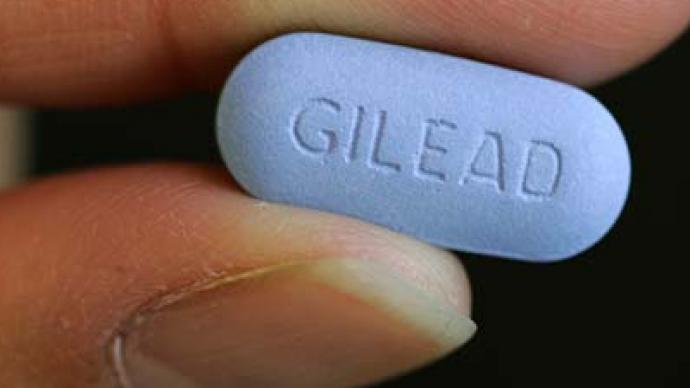Anti-HIV pill to cause AIDS epidemic?

It has been proven to drastically decrease the chances of contracting HIV before one is even exposed to the virus: Truvada is considered a medical breakthrough by some, yet others fear the once-a-day prevention pill could spur a deadly AIDS epidemic.
The drug — a small, blue pill ingested orally — is currently awaiting FDA approval. Its manufacturer, Gilead, argues that Truvada would reduce the risk of risk of contracting HIV in as many as three-quarters of cases and has been proven so in tests already. AIDS Healthcare Foundation President Michael Weinstein is weary of how people will use the pill, however, and warns, "I believe that this could be catastrophic in terms of HIV prevention.”The argument against approving the pill, says Weinstein, is that it will encourage partners to engage in unprotected sex. While the pill is proven to work in many cases, it is not 100-percent guaranteed. The result, he says, could only make things worse for AIDS and HIV.It’s a “fabulous drug – it's one pill once a day, and it has a low side-effect burden,” says Weinstein. Unless the user is aware that the success rate of Truvada is limited and takes extra precautions such as traditional prophylactics though, that ignorance might trigger an AIDS epidemic that could destroy America. When tested on gay men in four countries, the success rate for the drug was only around 44 percent. When tested by heterosexual couples in two African nations, Truvada proved to be 73 percent successful. Weinstein and other critics are concerned that unless users know the facts, they will learn to rely on the drug and only spread the virus.“There’s a whole issue of people who aren’t educated on the biology of HIV, who will think that because they’d be taking the pill, they will not become infected,” Cynthia Davis of the College of Medicine and College of Science and Health at Charles R. Drew University of Medicine and Science in Los Angeles tells The Final Call.“You will have groups of people who think, because they’re on this pill and it has this protective factor, that they don’t have to practice safer sex anymore … Because they’re on this medication, they’ll have this false sense of security,” Davis adds.“Although some of the trial results have been very impressive, the protection with pre-exposure prophylaxis is unlikely to be 100 percent,” writes British medical journal The Lancet. “And making drugs available as prophylaxis could encourage high-risk sexual behavior among those who believe themselves to be protected."In America, the Centers for Disease Control and Prevention says that men and women might abstain from using condoms if taking Truvada, based on “the false belief that they are protected” by the pill. Currently all medical options in dealing with HIV are available only after contracting the virus. Truvada, on the other hand, is administered as a precautionary measure — what physicians consider a “pre-exposure prophylaxis.” While test trials have shown substantial success in the effectiveness of Truvada, there is still plenty of room for the pill to go awry. In the test labs of the San Francisco Department of Public Health’s HIV Research clinic, Dr. Albert Liu is conducting studies of his own to see if high-risk behavior could emerge if people learn to rely on the pill’s only limited success. “We don’t know the answer, and that’s why it’s important to study it,” he tells Huffington Post.Elsewhere the medical community has acknowledged that the development of the drug could be considered a breakthrough, but with a window of contracting HIV still better than one-out-of-two odds, it only does so much to stop the spread.In California, where Weinstein’s AIDS Healthcare Foundation is based, nearly 42,000 residents were living with HIV as of June 2011. So concerning is the issue that the Los Angeles Council voted only this month to make condom use mandatory in most adult films. In LA, it is believed that 90 percent of the nation’s porn is produced. Nationally, the US saw around 50,000 new cases of HIV outbreaks in patients each year between 2007 and 2009.














